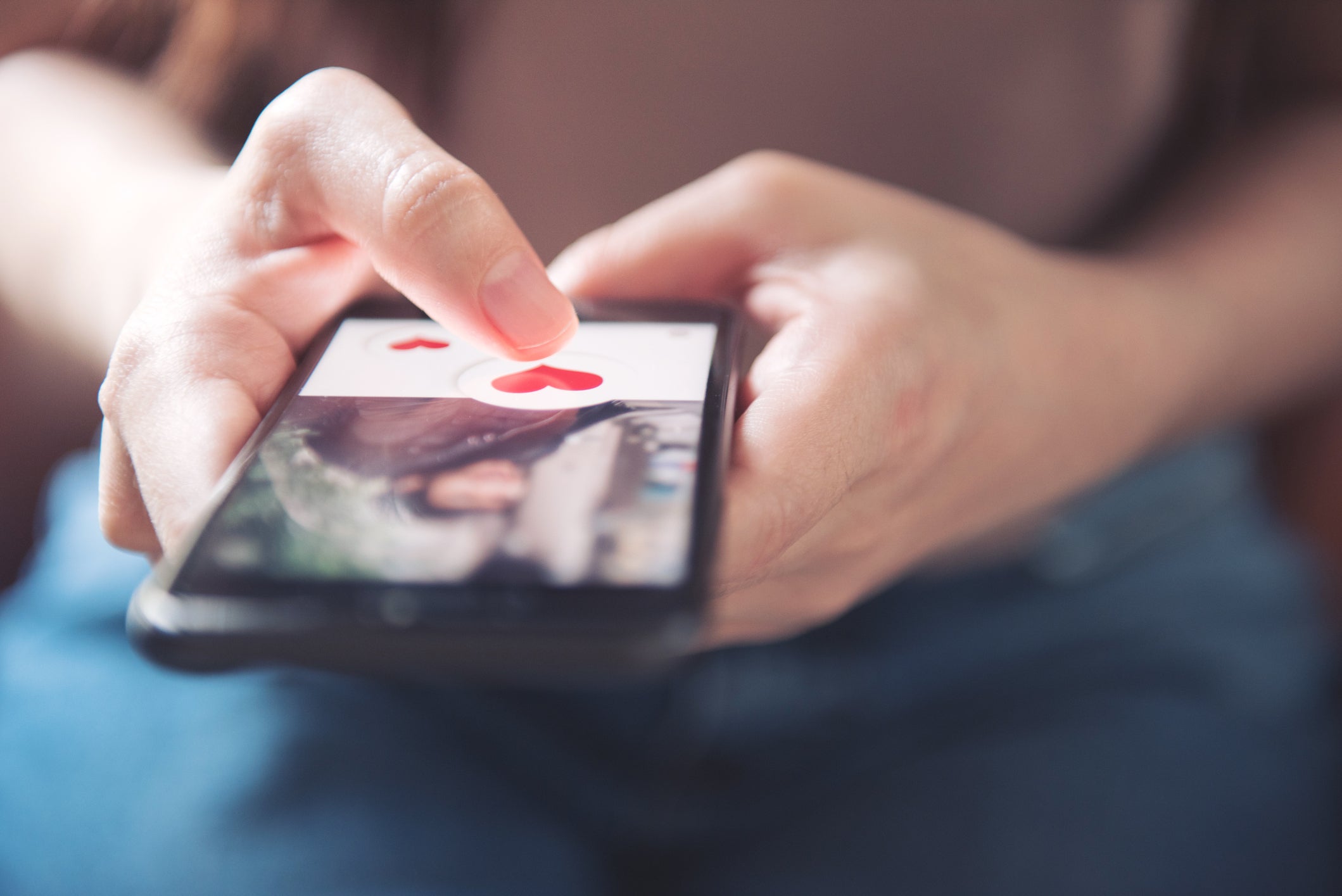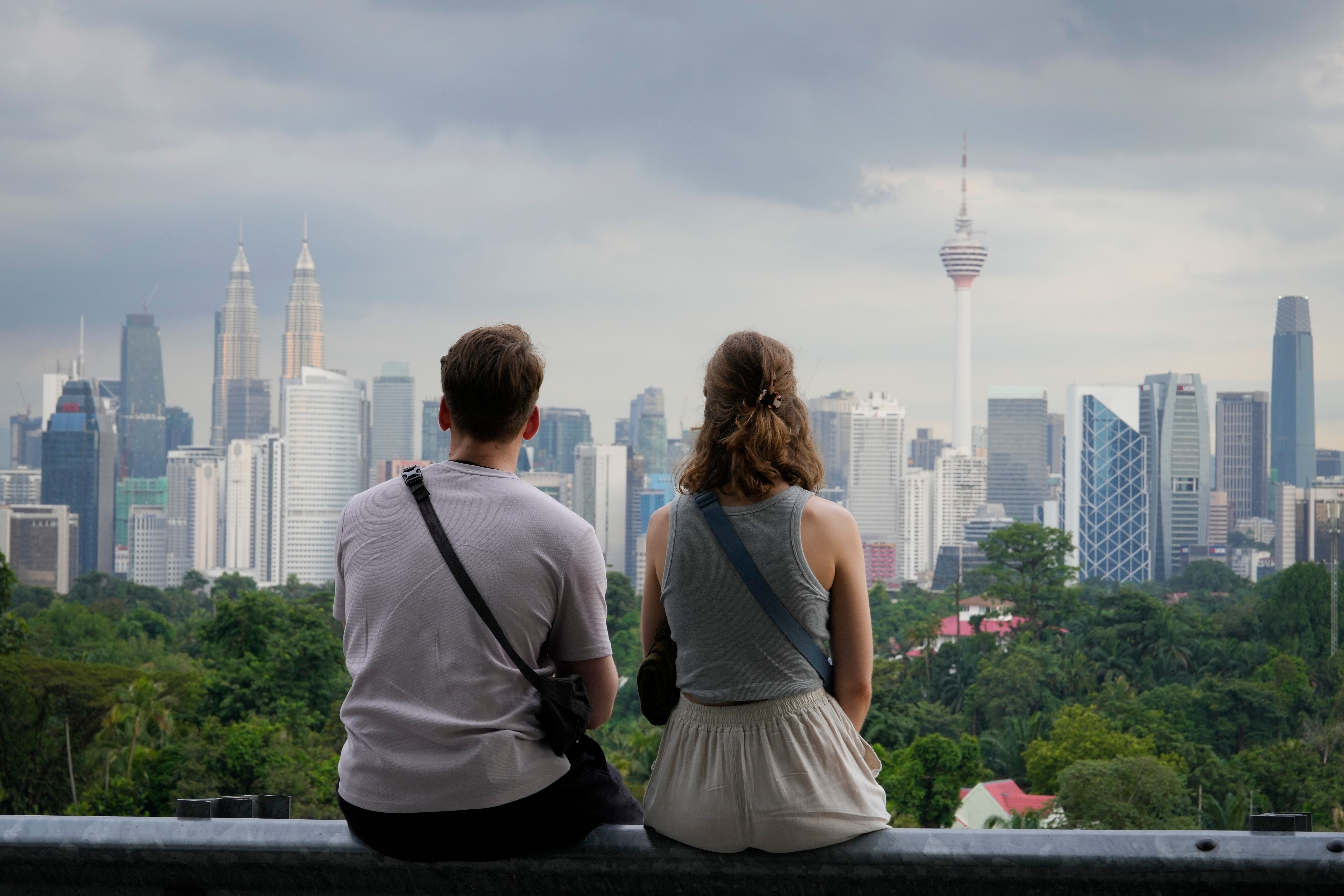Do we all want to date somebody ‘out of our league’? How online dating is contributing to income inequality
A recent study found that at least half of the rise in income inequality between 1980 and 2020 is attributable to changing preferences in the online dating scene.

Your support helps us to tell the story
From reproductive rights to climate change to Big Tech, The Independent is on the ground when the story is developing. Whether it's investigating the financials of Elon Musk's pro-Trump PAC or producing our latest documentary, 'The A Word', which shines a light on the American women fighting for reproductive rights, we know how important it is to parse out the facts from the messaging.
At such a critical moment in US history, we need reporters on the ground. Your donation allows us to keep sending journalists to speak to both sides of the story.
The Independent is trusted by Americans across the entire political spectrum. And unlike many other quality news outlets, we choose not to lock Americans out of our reporting and analysis with paywalls. We believe quality journalism should be available to everyone, paid for by those who can afford it.
Your support makes all the difference.Swiping dating app profiles goes beyond figuring out who gives you the ick — it may also encourage wealth disparity.
Nearly 60 million Americans report using dating apps like Tinder, Bumble, and Hinge, where you can filter by age, career, education, and other marketable traits.
But using the apps to find the ‘one’ means you could be contributing to income inequality, according to research from the Federal Reserve Banks of St. Louis and Dallas and Haverford College.
Researchers found that at least half of the rise in income inequality between 1980 and 2020 is attributable to changing preferences in the online dating scene. People are now even more likely to marry someone of a similar socioeconomic level — lawyers marrying bankers, truck drivers marrying plumbers etc.
The research looked at survey data from 2008 to 2021 – the period when dating apps like Tinder became the most common way to meet other singles – to track the education, race, income, skill level and age of recently married people.
The results perhaps aren’t surprising: people preferred marrying someone of the same race, education and age, and everyone preferred someone with higher income and skill levels (skills refers to if someone is a white-collar, blue-collar or service worker). Those preferences didn’t change much between 2008-2021, but when the researchers went back and included historical data from 1960 and 1980, those preferences sharply increased in recent decades.
“In other words, people would ideally like a partner who is ‘above their league,’” the report noted.

Although the research time period coorelates to the rise of online dating apps, it did not specifically ask if respondents used the apps — with one dating app company openly questioning the validity of the data whenThe Independent asked it for comment.
“We strongly disagree with the conclusions drawn from this analysis, which we find to be overly simplistic and logically flawed,” said a Match Group spokesperson, the company behind Hinge and Tinder. “We believe the authors failed to provide any solid evidence of a causal relationship between online dating and inequity, instead relying on superficial correlations in timing to support their claims. More concerning is that the research does not attempt to distinguish which couples were online daters, a critical omission that undermines any effort to assess the actual impact of online dating.”
The most significant contributing factors were education (35 per cent), skills (30 per cent), income (15 per cent), and age (15 per cent), while race played a relatively minor role (5 per cent). The report also found that between 2008-21, women had a slightly higher preference for those of their own age while men showed a higher preference for women with the same education levels.
Part of the explanation is cultural: as women reject domestic roles for careers and higher education, they want partners who share their accomplishments.
The report highlighted that the higher availability of educated and skilled women has decreased the number of men who prefer uneducated women. This contrasts to data from 1960 to 1980, where men preferred women with the least income, skills, and education, “implying a preference for spouses who assume domestic roles,” the researchers wrote.
The findings are in line with general trends in heterosexual dating: while both genders prefer partners with high income and education levels, the effect is more pronounced for women. “Women are more selective in romantic partners than men and more likely to prioritize resource-acquisition ability in a possible long term mate,” the Institute for Family Studies wrote.
In terms of overall preferences, “our paper found that people were most selective on race, followed by education and age to a much lesser degree,” they added. Previous research shows that your success on the online dating market may be up to your race: Black women and Asian men are the most ignored, while white men and Asian women receive the most attention. But the report noted this effect may be less pronounced: since 2008, both genders are more open to dating someone of a different race.
Liesel Sharabi, a professor of communication at Arizona State University, said that dating apps may further accelerate preferences that already appear during in person dating.
“While online dating has the potential to connect people from diverse backgrounds, it can also be an incredibly efficient way for people to identify others who are similar to themselves,” Sharabi told The Independent. “In this sense, online dating may perpetuate income inequality by making it easier for people to connect with those of the same or higher socioeconomic status.”
Join our commenting forum
Join thought-provoking conversations, follow other Independent readers and see their replies
Comments